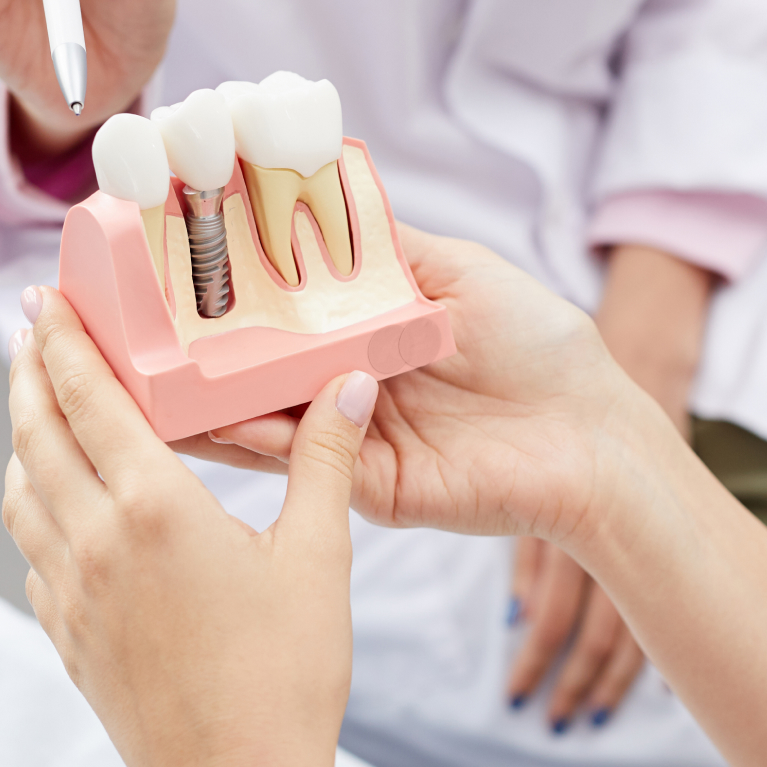- Home
- About Us
- Our Service
- Post-Operative Instructions
- Facilities
- Gallery
- Testimonials
- Blog
- Contact Us

- Home
- About Us
- Our Service
- Post-Operative Instructions
- Facilities
- Gallery
- Testimonials
- Blog
- Contact Us

Dental implant surgery is one of the most common reconstructive procedures performed today. Dental implants are a type of artificial tooth root that are made from a synthetic material such as titanium.They are permanently attached to the jawbone where they replace missing teeth.
Following your doctor’s instructions during dental implant surgery is essential for a successful outcome. If you don’t follow their instructions, you may experience complications, including jaw pain, increased susceptibility to infection, or even dislocation of the implant. Natural teeth are the best option for a stunning smile.
Dental implants are modern dental options for tooth replacement. Implants are long-lasting and natural-looking tooth replacements that consist of a titanium post surgically implanted into the jawbone, an abutment that links the post to the replacement tooth, and a custom-made crown.
They provide benefits including stability, increased chewing ability, and jawbone health maintenance while closely matching the appearance and function of natural teeth. While dental implants are not for everyone, they do provide a long-term option that can dramatically improve both oral health and appearance.
Dentists often recommend dental implants for a variety of reasons, as they offer numerous advantages compared to other tooth replacement options. Here are the common reasons dentists suggest dental implants:
Preparing for dental implants entails both physical and mental preparations in order to ensure a smooth and effective treatment. Here's a step-by-step procedure:
Research and Education: Learn about dental implants, how they operate, and the benefits they provide. Look into renowned dentists or oral surgeons who specialize in implant surgery.
Consultation: Make an appointment with a certified dental specialist. Discuss your oral health, medical history, and expectations with your dentist. Medical Assessment: Inform the dentist about any medical problems, drugs, or allergies you may have. They will evaluate your general health to see if you are a good candidate for implants.
Dental Examination: Undergo a full dental checkup, which may involve X-rays or CT scans to examine the health and shape of your jawbone. Treatment Plan: Create a tailored treatment plan with your dentist. Learn about the amount of implants required, the operation steps, and the timetable.
Health Optimization: If you have any medical issues that might interfere with the treatment, make sure to follow your doctor's advice.
Smoking Cessation: If you smoke, you should think about stopping or lowering your smoking since it might impede the healing process.
Oral Hygiene: Maintain proper oral hygiene by brushing and flossing on a regular basis to ensure your mouth is in good shape before the treatment.
Rest and Relaxation: Before the surgery, get a good night's sleep and try to be calm. Anxiety might have an influence on the process.
Remember that open communication with your dentist is essential. Please do not hesitate to ask if you have any queries or concerns. You may improve your chances of a successful dental implant procedure by being well-prepared and knowledgeable.
Following adequate post-operative care after receiving dental implants is critical to ensuring successful recovery and long-term success. Here's a checklist of things to do after obtaining dental implants:
Oral Hygiene: Maintain good oral hygiene by cleaning your teeth gently after meals, including the implant region, using a soft-bristled toothbrush. Avoid disrupting the implant site by flossing carefully.
Prescribed Medications: Take any antibiotics, pain killers, or other drugs that your dentist has recommended. Follow the dose and schedule that has been prescribed.
Swelling and Discomfort: Following surgery, some swelling, bruising, or soreness is common. To minimize swelling, apply cold compresses as prescribed by your dentist.
Follow-Up Appointments: Attend all follow-up appointments with your dentist or oral surgeon as planned. They will keep track of your recovery process and resolve any issues that arise.
Oral Rinse: Use an antibacterial or saline rinse as directed by your dentist to keep the surgery site clean.
Sleeping Position: Elevate your head slightly while sleeping to minimize swelling.
Gradual Return to Normal Routine: Return to your usual daily schedule and activities gradually as you recuperate.
Regular Dental Visits: Maintain frequent dental check-ups and cleanings to keep your implants and surrounding teeth healthy.
Monitor for Complications: Keep a watch out for infection symptoms such as increased swelling, discomfort, or discharge. If you detect anything out of the ordinary, contact your dentist.
Follow Your Dentist's Instructions: Always follow your dentist's or oral surgeon's post-operative care recommendations, as they are tailored to your unique condition.
Dietary Restrictions: Stick to a soft diet at first to prevent placing undue strain on the implant site. As your recuperation continues, gradually reintroduce solid meals.
Avoid Tobacco and Smoking: If you smoke, avoid doing so throughout the early healing phase. Tobacco use might impede recovery and raise the risk of problems.
Avoid Hard and Sticky Foods: Avoid foods that are firm, crunchy, or sticky because they may harm the implant or aggravate the surgical site.
Avoid Alcohol and Hot Drinks: In the first few days, avoid alcohol and especially hot drinks since they might interfere with recovery.
Activity and Rest: During the first several days after surgery, avoid hard physical activities and rest as needed.
Avoid Touching the Surgical Site: To avoid infection or disrupting the healing process, avoid contacting the implant site with your fingers or tongue.
Avoid Sucking or Spitting: Activities like using straws or spitting forcefully should be avoided since they might produce suction and potentially upset the healing region.
Keep in mind that proper aftercare is essential to the success of your dental implants. If you have any issues or questions throughout your recuperation, please contact your dental expert for assistance.
In conclusion, the path to a confident smile with dental implants extends beyond the surgery itself. Adhering to postoperative instructions is your assurance of a successful recovery and long-term oral health. By carefully following these guidelines, you're taking proactive steps to ensure the seamless integration of your implants and paving the way for a brighter, more confident future with your revitalized smile.
#55, Hospital Road, Dehiwala, Sri Lanka.